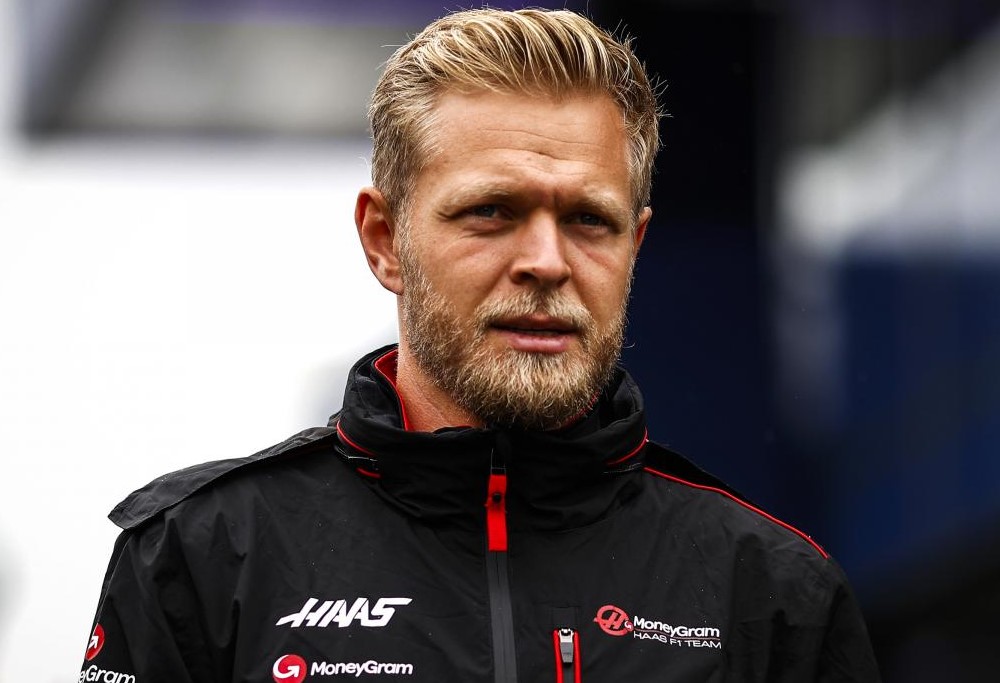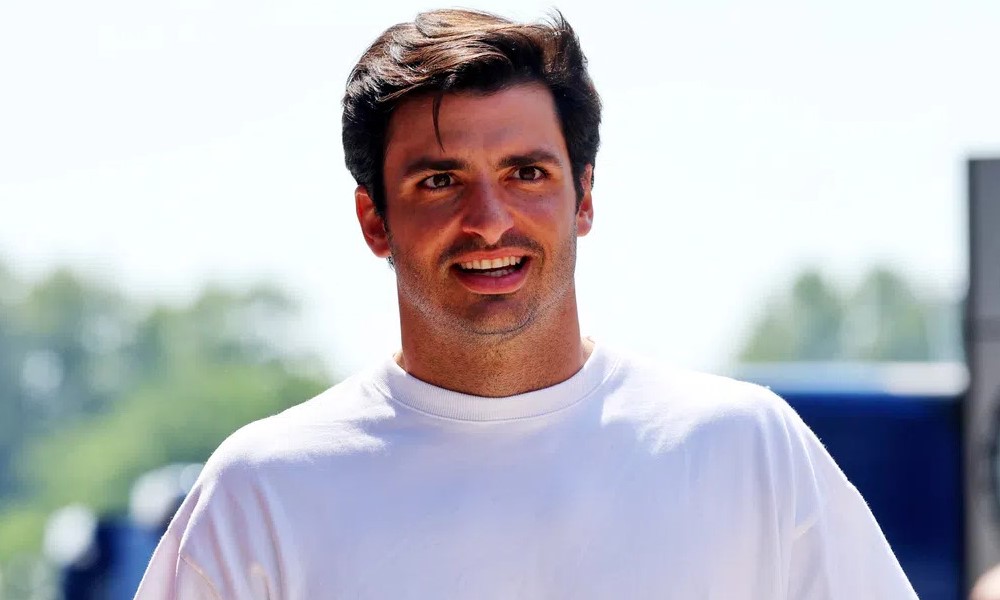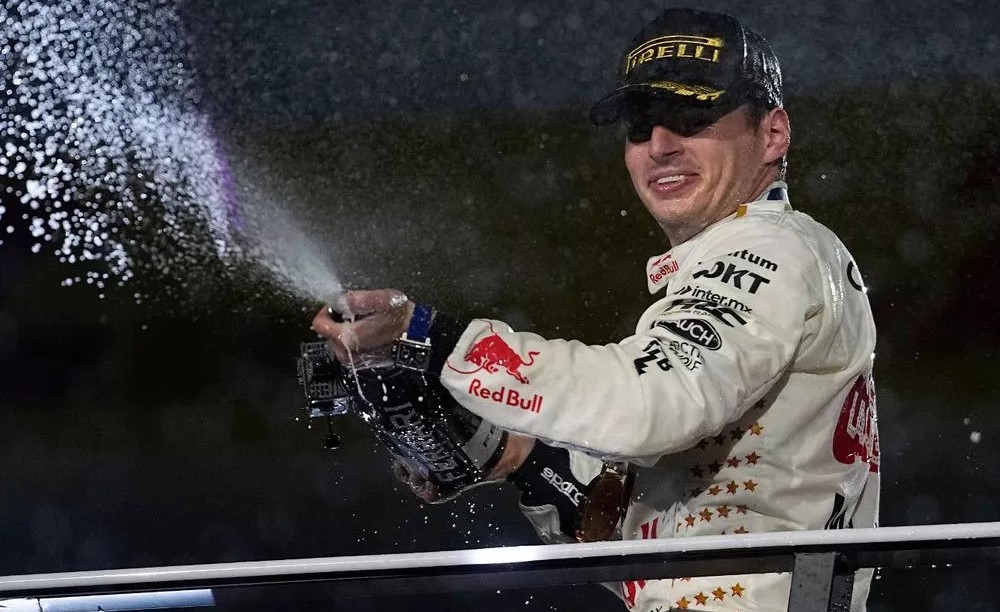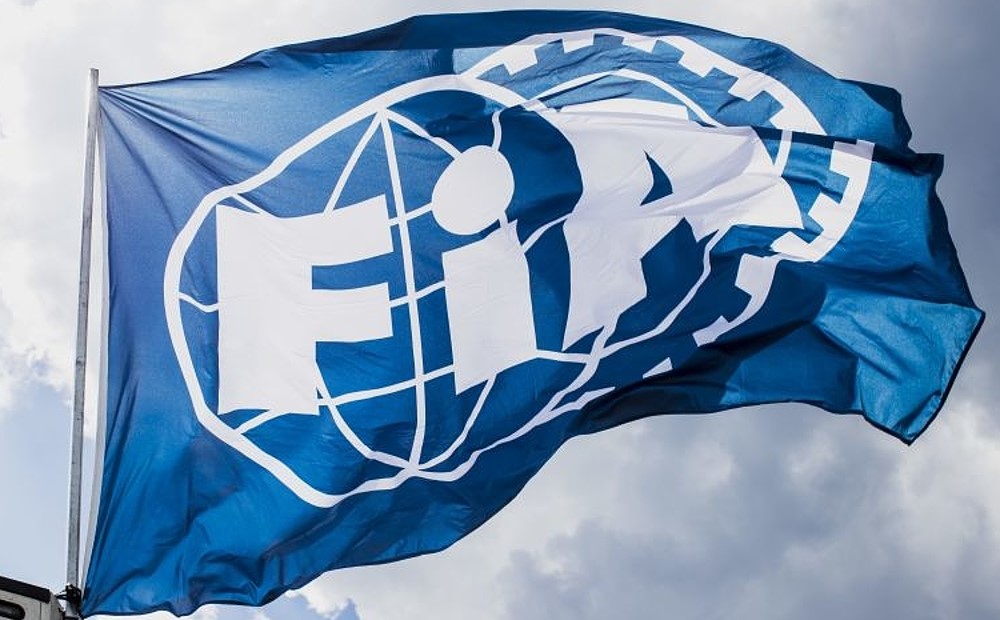Kevin Magnussen’s race ban for the Azerbaijan Grand Prix has sparked concern from fellow F1 drivers who have called out the contentious nature of the sport’s penalty points system.
The Haas driver found himself sidelined after accumulating 12 penalty points on his super license over the past year, a threshold that automatically triggers a race ban according to FIA regulations.
The severe penalty marked a notable moment in Formula 1, as it was the first driver suspension in over a decade, the last being Romain Grosjean’s in 2012 due to a serious crash.
The circumstances leading to Magnussen’s race ban stem from a series of incidents over the past year, culminating in a collision with Pierre Gasly during the Italian Grand Prix, which was deemed wholly his fault by the stewards.
The incident at Monza resulted in a 10-second time penalty and two additional penalty points bringing his total to 12, therefore triggering the suspension for the Azerbaijan Grand Prix race.
While neither car suffered significant damage, the stewards ruled that Magnussen’s actions were unsafe, citing a violation of Article 2(d) of Chapter IV, Appendix L, of the FIA International Sporting Code.
However, several F1 drivers including Gasly himself have criticized the decision, arguing that the incident was minor and did not warrant Magnussen’s race ban. The Alpine driver had earlier on remarked that it was “nothing” and the penalty was “unfair”.
Magnussen’s teammate Nico Hülkenberg also voiced his opinion on the matter, describing the penalties as excessively harsh. He argued that the incident at Monza was simply part of racing and did not merit the severe consequences that followed.
“Obviously, there’s a history of how that happened and he accumulated all those penalty points but if you look just isolated at the Monza incident, I think, that’s racing,” he said.
“I mean, it’s pretty straightforward, fair and square racing. I don’t see two penalty points for that, or that 10-second penalty even – that’s very harsh.
“That’s my opinion, but most drivers feel the same way about that. I had a case with Fernando [Alonso] in Austria, in the sprint race, where I kind of tried to make a move in turn three, and locked up and went a bit wide, and he had to go off the track.
“But, I mean, that’s racing; to overtake we have to leave the comfort zone and take some risk and then that kind of happens sometimes. It seems a bit that the stewards, whenever there’s a little contact, they want to get involved.
“They want to have a consequence for it, which I think the drivers feel is not really necessary for every contact. Maybe the penalty guidelines need to be reviewed and then changed because we need to be able to race.”
Yuki Tsunoda, who has faced similar scrutiny in the past, echoed these concerns suggesting that the 12-point system is too strict especially given the demanding 24-race calendar.
“I was in that situation, I almost got banned two years ago,” Tsunoda said. “If I understood correctly, the penalty points didn’t seem to change from once they introduced the maximum points they can reach.
“It feels like that the penalty points system should get a little bit more compliant, I guess – it seems still kind of strict for 24 races, but at the same time, they had to do it [ban Magnussen] I guess.
“If the track limits get penalty points, that’s too much then you get enough penalty in the race in race results. I don’t think it’s necessary to put it the penalty points, but collision like now, I guess it’s good to have, but case by case, for sure.
“But also, it seems to look case by case anyway, because some of the cases that they put to the driver one point instead of two, it depends on the situation.”
President of the Grand Prix Drivers’ Association George Russell acknowledged the need for strict penalties to maintain a good precedence for junior drivers but also questioned whether the penalty points system was too harsh.
“It’s a conversation that’s been had a number of times in previous years, as drivers have sailed close to the wind,” the Mercedes driver said. “No one’s been banned in 12 years, so you could argue, were the penalty points actually harsh enough?
“You could argue for sure his penalty points from Monza seemed a little bit harsh, but you could also argue some of the other incidents perhaps were not harsh enough. So yeah, I think also we need to set a bit of a precedent as well for the junior series.
“Those guys look up to us in F4, F3, F2 and you shouldn’t be allowed to get away with dangerous or erratic driving and at some point, you do need to be punished for it.”
Haas team principal Ayao Komatsu acknowledged that while the penalties may have been in line with the guidelines, there is a need for a broader discussion about their appropriateness. He raised concern that the current system may not adequately account for the nuances of racing incidents, suggesting that a re-evaluation could benefit both drivers and the integrity of the sport.
He said: “I think according to the penalty guideline, the penalty that was given on that particular incident, I can’t really argue.
“But it’s more a question of if that penalty guideline is correct.”
As the F1 paddock grapples with the implications of Magnussen’s race ban, it is clear that the incident has sparked a critical conversation about accountability, and the need for a fair and effective penalty system.
In the wake of the Dane’s suspension, Oliver Bearman was named as his replacement for the Azerbaijan Grand Prix.





